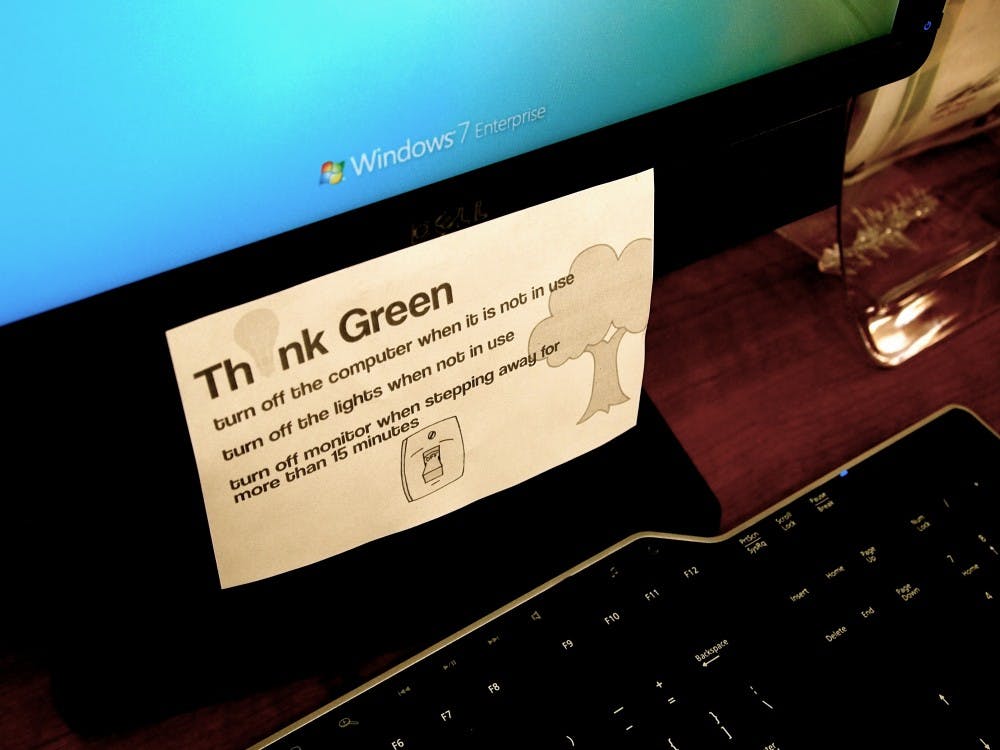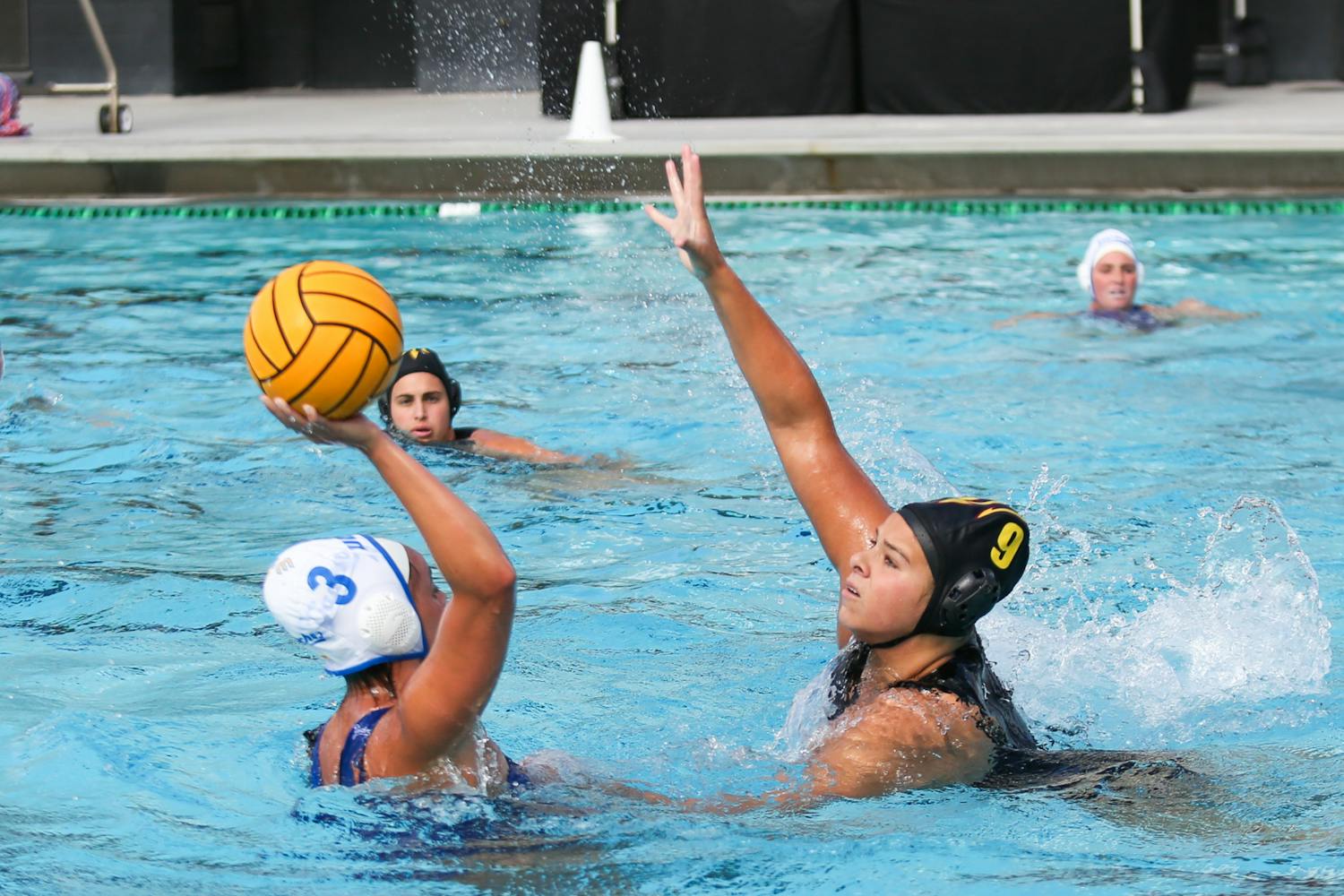 'Think Green' note cards posted on computer screens of the USGD office as well as light switches to ensure members try to reduce their electricity waste. (Kaitlyn Ahr/ The State Press)
'Think Green' note cards posted on computer screens of the USGD office as well as light switches to ensure members try to reduce their electricity waste. (Kaitlyn Ahr/ The State Press)Undergraduate Student Government Downtown members made it their initiative to implement legislation that would make the Downtown campus act as a catalyst for sustainability in the University in August 2014.
Members are developing a checklist in which clubs need to meet certain criteria of environmental feasibility in order to receive funding. USGD Vice President of Services Corina Tapscott said they began the work to implement this concrete code of sustainability long before the bill was actually proposed last week.
“Frank (Smith) brought (sustainability) up a long time ago in fall, even in summer, because it’s something we’ve cared about for a while,” Tapscott, a social work and psychology sophomore, said about the President.
Tapscott also said Smith made sustainability one of USGD’s top three goals.
In August, the slew of initiatives began boiling, triggered by the arrival of one senator: nonprofit sophomore Liz Gray.
Gray, chair of the Downtown Phoenix Affairs Committee, worked with Smith to push the Downtown campus toward a more sustainable future.
“We’re envisioning a future for this campus,” Gray said. “Get solar panels, get composting bins — we’re working on that, putting composting bins in the cafeteria by where you put your plates … so we are doing a lot. We’ve done water filters. We’ve put a lot of water filters on campus. If you’ve ever been in University Center you can see it on the second floor to promote refillable water bottles and less plastic.”
USGD began its quest within its own ranks by applying the rules it hopes to implement like the checklist on itself first to work out the kinks and then expanding it to the downtown community.
The club began this approach in August 2014 with work to convert its office into what it refers to as a “green office,” turning off lights and computers when they aren’t in use, only using paper when they absolutely need it, and using recycled paper in those cases.
The conversion of the office and their own use of this sustainability checklist, however, reflects their goals for ASU and their hopes for the future.
“Downtown can be a great experiment for ASU,” Gray said. “Because we are so small and we are an urban campus. And urban planning like this, you know, having such a strategic planning of all the buildings and all the services and programs offered inside the buildings? Small campuses are just made for this kind of thing — to be the prototype. To be the example or the guinea pig for the rest of the campuses, because putting some things like this on Tempe is a lot harder. Tempe’s huge; Tempe’s sprawling.”
However, their work toward a more sustainable campus hasn't come without its own hurdles. Many of the Senators looking over the checklist bill were concerned with smaller events and how they would fit into the mix. Tapscott said certain events may not be able to check off enough of the suggestions on the list because they require fewer supplies.
“We’re still in discussion on the exact details like how many boxes clubs need to check off, if this proposal is going to be mandatory or just highly suggested, and how we are going to adapt this to different sized events.”
USGD still remains positive for the future, confident that in its own experimentation they will expand on the legislation and apply it to ASU as a whole.
Reach the reporter at megan.janetsky@asu.edu or follow @meganjanetsky on Twitter.
Like The State Press on Facebook and follow @statepress on Twitter.




